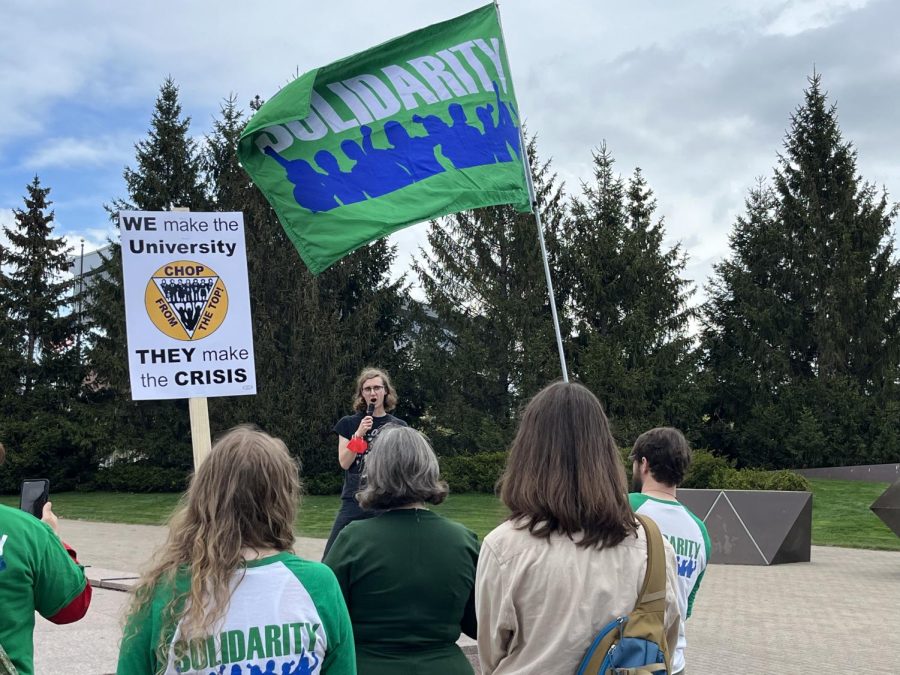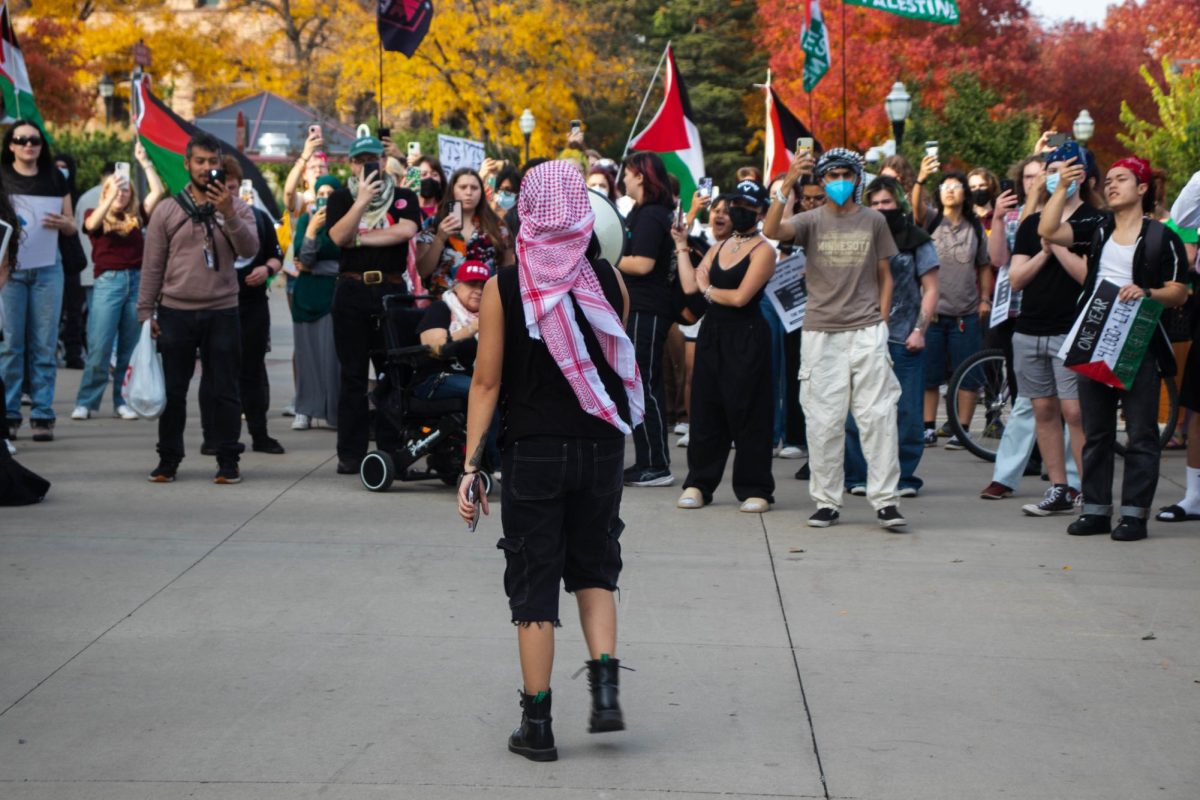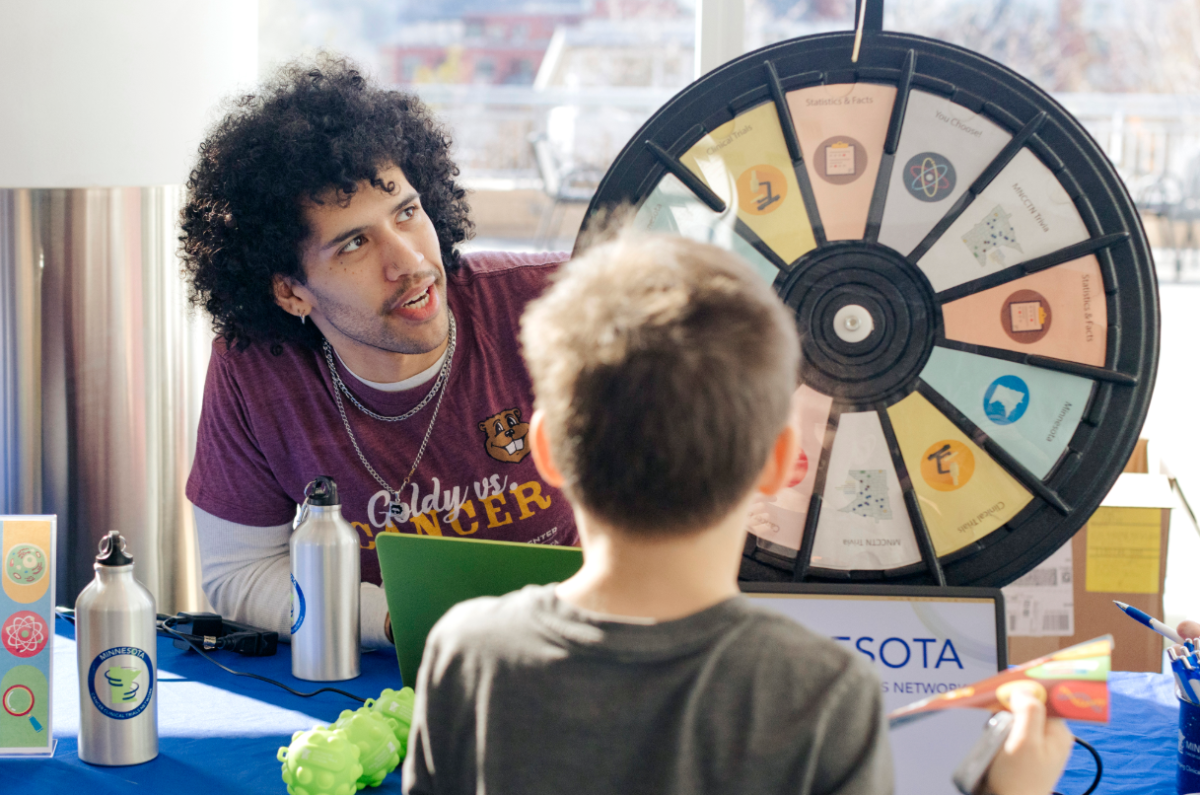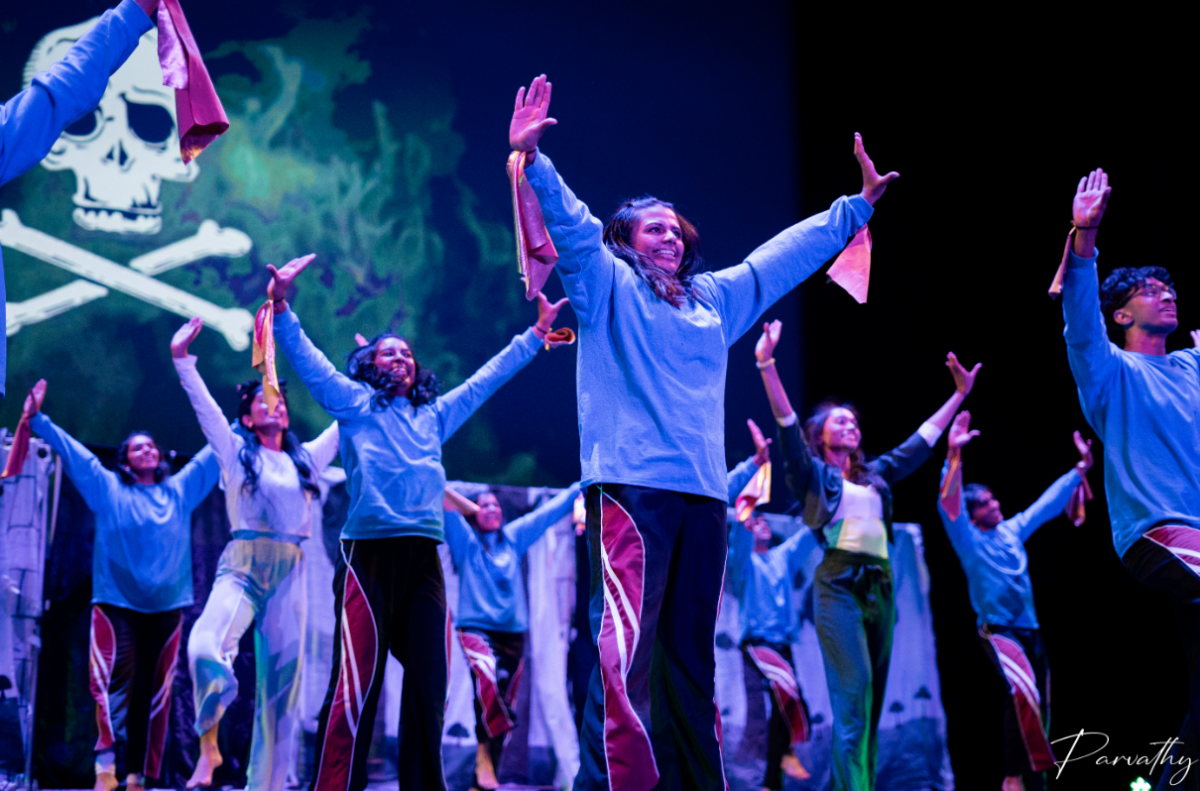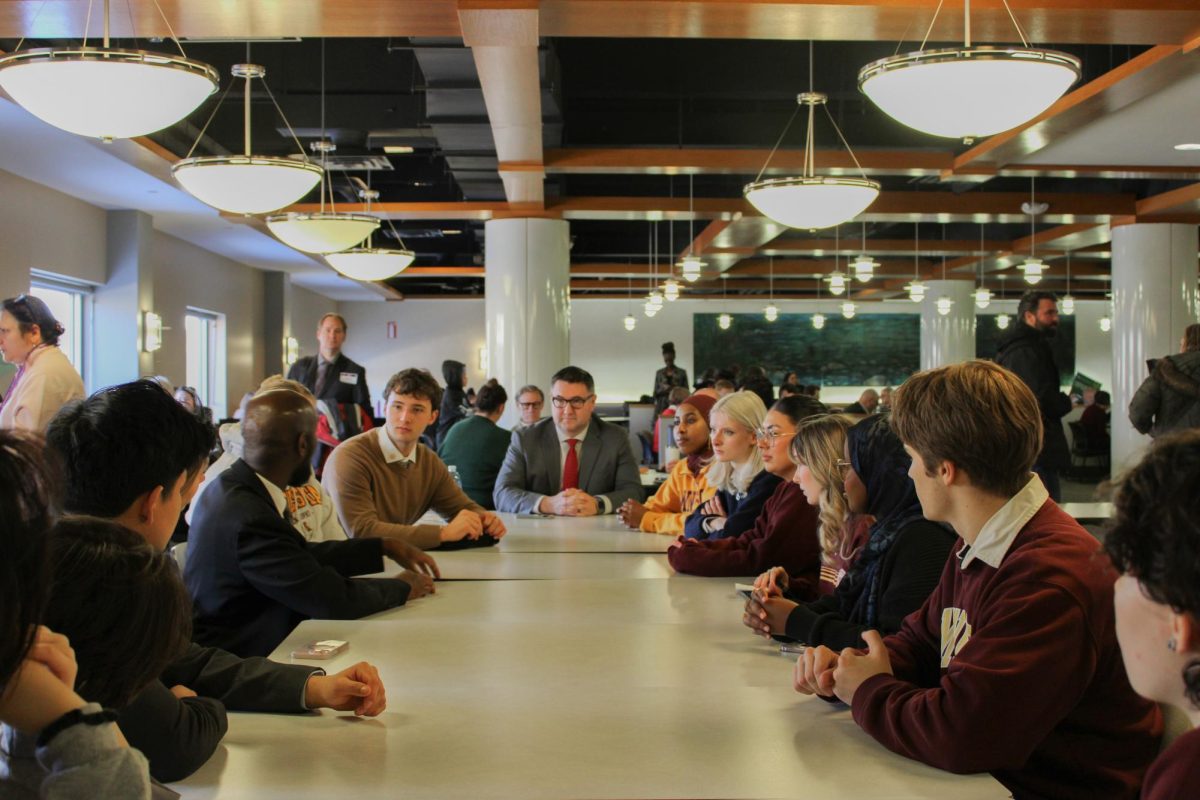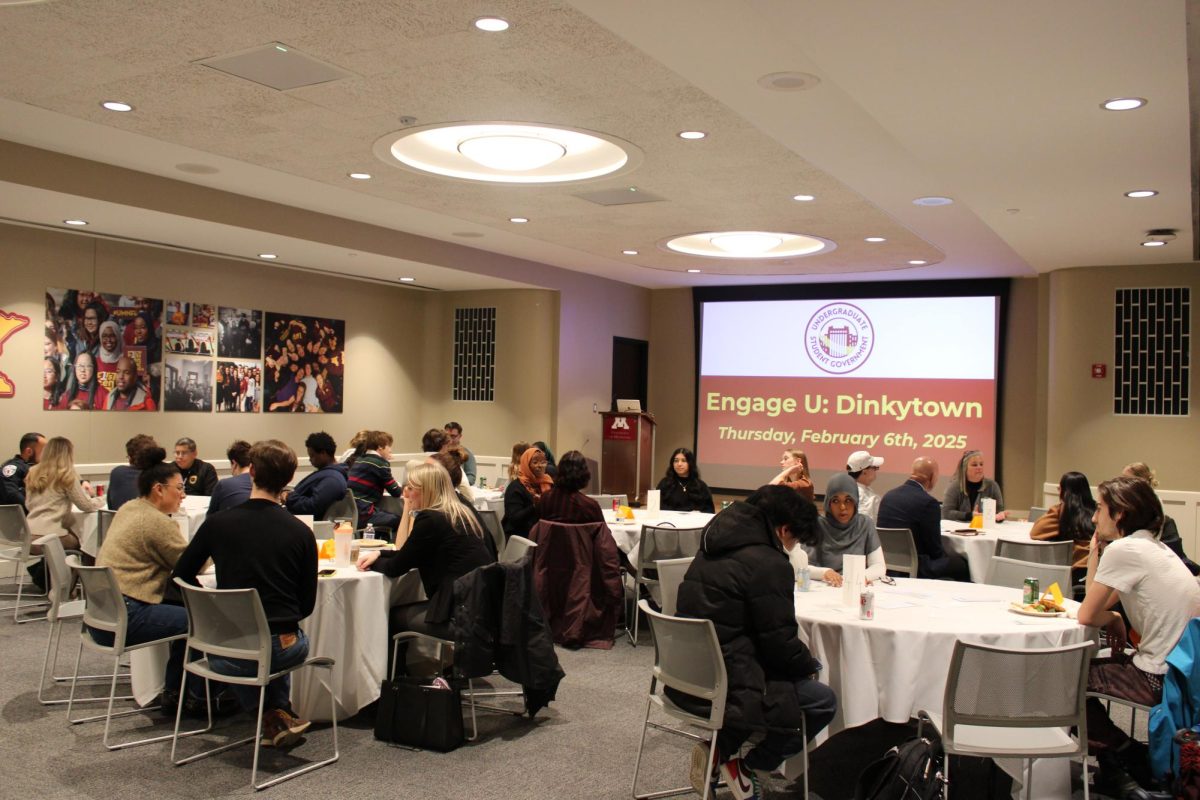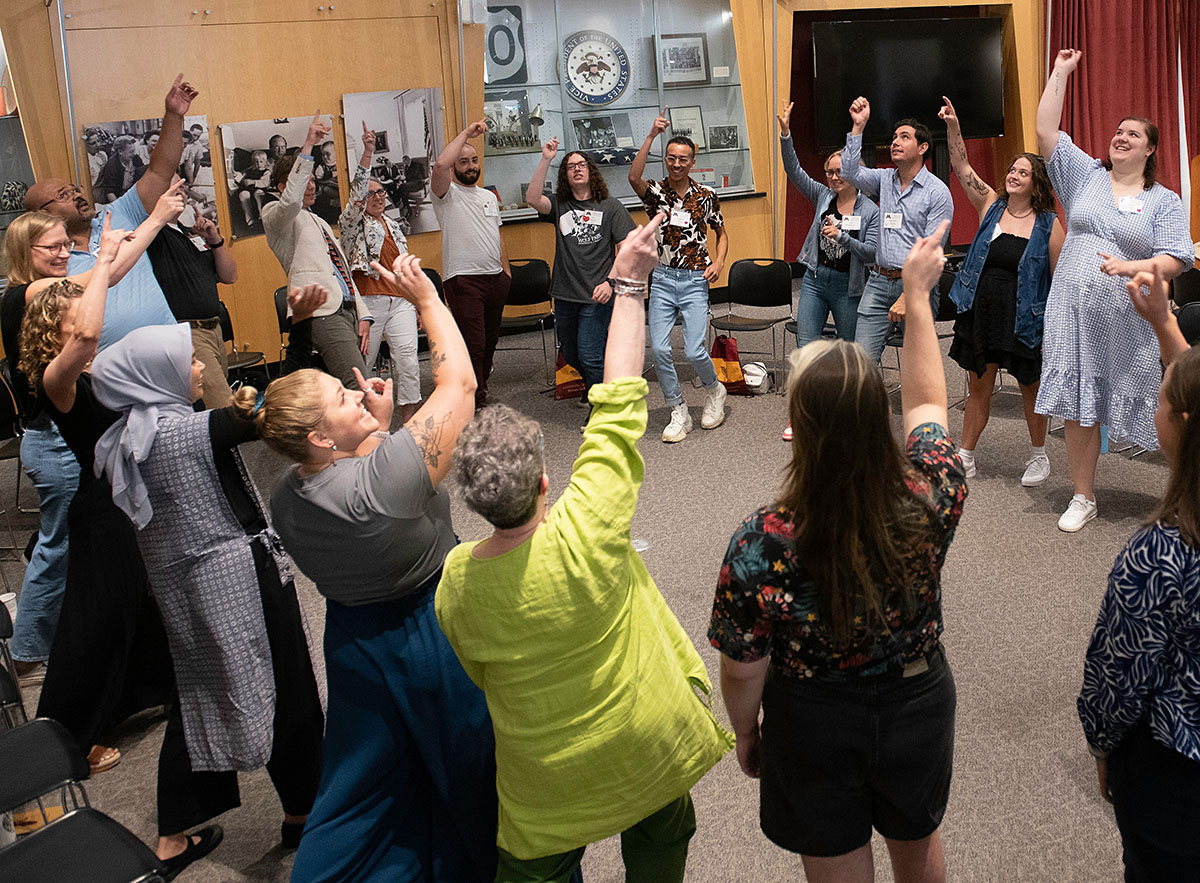A year after its formation, the University of Minnesota Graduate Labor Union (GLU) continues to work on tentative agreements with the University.
The union started bargaining with the University in September and said there has been little progress since.
GLU is a graduate worker-led organization working toward improving conditions for graduate student workers at the University, according to their website.
David Munkvold is a graduate student on the bargaining committee for the union. He said the committee met every other week on Thursday and Friday with the University’s bargaining unit trying to reach an agreement on contracts.
Munkvold said GLU had several “tentative agreements” where both sides agreed to the language of the employment contract.
“We’re still working on a number of articles,” Munkvold said. “There’s been a lot of pushback from the administration regarding a hostile work environment, nonsexual harassment as well as international student rights.”
Munkvold said the University pushed back on some of GLU’s policies because they believed their current solutions were sufficient for the problems graduate workers encounter.
According to a joint statement from the Office of the Provost, Office for Human Resources and the Dean’s Advisory Council, the University received GLU’s extensive economic proposal.
“The University continues to actively participate in these important negotiations and looks forward to reaching an agreement with GLU,” the statement said.
Through a spokesperson, Vice President for Human Resources Ken Horstman declined to be interviewed for this story.
Despite not moving at the pace GLU wishes, Munkvold said they understand bargaining takes a long time as they only meet every other week and therefore they remain optimistic.
“A lot of our platform items are sticking by them,” Munkvold said. “We are doing a lot of organizing in addition to the bargaining sessions to get people engaged in the bargaining sessions content, and get people engaged with the process because our power at the bargaining table comes from our members organizing and coming together and demonstrating that they do want what we are providing for them.”
Anya Auerbach, a GLU organizing member, said the union had been building on the democratic structures of the organization.
Auerbach said the union had several people not on the bargaining committee sit in person and on Zoom to watch the first bargaining session. She added how powerful this ended up being, as the University came back with nothing after three weeks.
“They hadn’t really even looked at our economic proposals yet, and we were frustrated,” Auerbach said. “We were upset that it made people feel like they were not taking us seriously, like they wanted to delay things as long as they could.”
After that, Auerbach said people in GLU wanted to help make the University take the union seriously, so they emailed their deans. She added this seemed to work, as the University came back with a counter-proposal shortly after.
A challenge Munkvold said the union is faced with is keeping people engaged. He said with the nature of graduate workers, people are coming and leaving every year.
Auerbach said people have different issues, whether that be pay, bad relationships with advisers, anti-harassment, workplace safety and structural issues.
“All of us have issues and it’s really asking people, talking to people, ‘What are your issues? What would you like to be better?’ and thinking how can we make that happen,” Auerbach said.
Munkvold added the nature of graduate work is for people to keep problems to themselves, but it does not take much to realize others face similar issues.
The first week of April was Graduate and Professional Student Appreciation Week but, according to Auerbach and Munkvold, graduate students did not feel appreciated.
“I think a lot of us, especially the timing of that event, made a lot of people feel indignant,” Auerbach said. “You just ignored us at bargaining and didn’t even look at our proposals on these things that we need, like adequate pay to actually live in the place that we work. You know, just little issues like that, and then you’re like, ‘Here’s some donuts!’”
Munkvold said the union appreciated some effort is being made to make graduate students feel like they are being acknowledged, but this does not make them feel as valued as they hope.
Despite not always feeling valued, Auerbach said the graduate workers do feel appreciated by the administrative people they work with.
“That’s not the issue, right?” Auerbach said. “We work with good people in our immediate environment for the most part, but they’re also not the ones with power.”
Munkvold said there are some legislative changes potentially happening at the state level that would allow more people working at the University who are not in the bargaining unit to organize.
Auerbach said the legislation would also increase the number of undergraduate students eligible to unionize.
According to Munkvold, if the University cares, they will work with GLU to get to an agreement soon, allowing people to get back to work two days every other week instead of bargaining.
“I want to get back to doing work,” Munkvold said. “That’s what we all want.”


